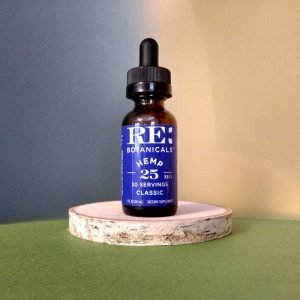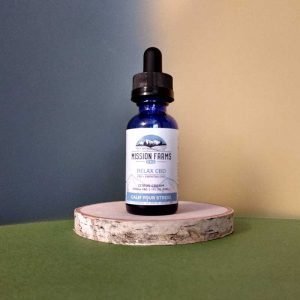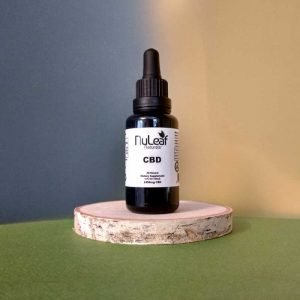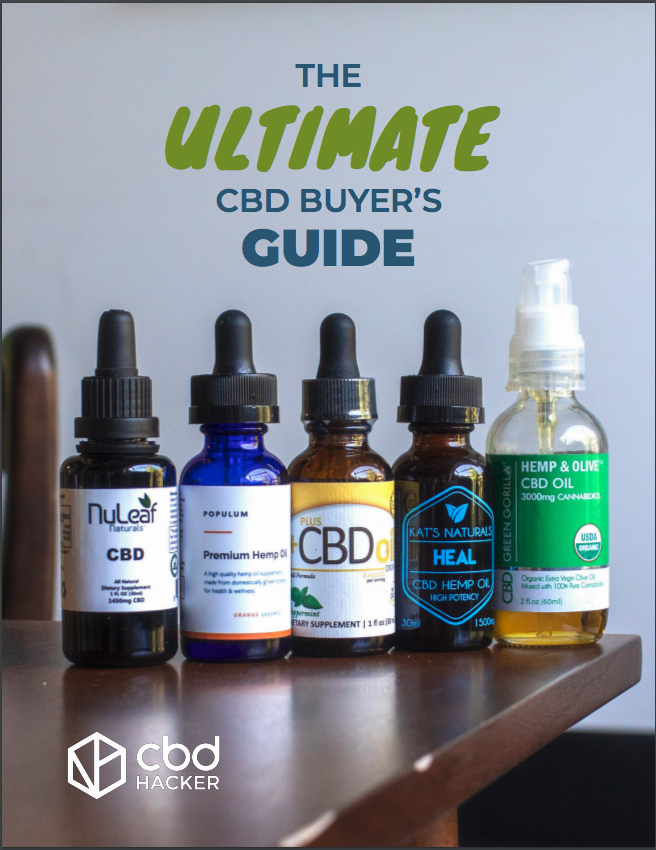Cancer is one of the most feared diagnoses in medicine today. It is not merely the unknown that causes worry, but the understanding that cancer treatments themselves take a toll on one’s overall quality of life.
“I don’t know what I would have done without cannabis during chemo,” explains Elizabeth, who learned that she had stage one lymphoma earlier this year.
“I felt fortunate to have received my diagnosis so early, but I still had to push through six rounds of chemo. I needed to keep working, and I didn’t want to miss any time with my new granddaughter.”
Recently, there has been a discussion surrounding the anticancer effects of CBD. The claim is that CBD and other cannabinoids may do more than help relieve cancer symptoms, but help in treating cancer itself.
What does the scientific literature show? And what benefits have doctors seen when using CBD and other cannabis products for their patients? In this article, we will share with you the science behind CBD and cancer — both CBD’s potential and its limits.
About CBD for Cancer
Claim
CBD cures cancer and stops cancer therapy’s adverse effects.
Research Shows
CBD has displayed anticancer effects in preclinical trials. Limited clinical trials have found that CBD, when used alongside THC, may help to relieve the side effects of cancer and its treatments.
Just the Facts
There is evidence that a combination of THC and CBD may help cancer patients manage symptoms.
No studies have examined CBD alone for cancer symptom management. As for CBD’s anticancer effects, there have been no clinical trials, so we do not know how CBD impacts cancer in humans.
Elizabeth’s Story
“There were times when it was just a lot to take. I would feel anxious, mentally exhausted, and even my favorite foods didn’t sound good. But when I started using a cannabis vape pen, I felt some relief.”
Elizabeth’s pen contained cannabis oil with a 1:1 ratio of THC to CBD, the two most well-known compounds in cannabis plants. While Elizabeth credits her doctors with her forward progress, she is grateful to have had CBD and THC to help her through.
“I needed the THC to enjoy eating and to sleep well, but the CBD really helped me during the day. When I needed to work, I took additional CBD. I would end up taking three or four times more CBD than THC. The CBD made me feel less out of it. It helped me think more clearly.”
Elizabeth isn’t alone in her use of cannabis for cancer. Medical cannabis is one of the most popular alternative therapies for cancer patients in the United States. The unique compounds found in cannabis have demonstrated an ability to boost appetite, relieve nausea, and calm the mind, three benefits that are particularly beneficial for cancer patients.

About Cancer
Each of our bodies is made up of trillions of building blocks known as cells. Cells have a normal lifecycle in which they are created, carry out specific functions, die, and are replaced by new cells.
Cancer occurs when this natural process is interrupted. Rather than dying, cancer cells continue to grow and replicate. These abnormal cancer cells crowd out healthy cells, interfering with the normal functioning of the body.
Cancer is an umbrella term for more than 100 different diseases. In spite of their similarities to one another, there are many differences between the various types of cancer. Cancers are generally categorized based on where they start (for example, breast cancer). Cancer can then spread from one part of the body to another, a process known as metastasis.
Treatment of Cancer
Cancer treatments are designed to kill off cancer cells while minimizing harm to healthy cells. There are three primary strategies for treating cancer:
- Surgery: Surgery involves the surgical removal of a mass of cancer cells known as a tumor.
- Chemotherapy: Chemotherapy is the use of toxic chemicals that kill cancer cells.
- Radiation: Radiation uses X-rays to target and kill cancer cells.
Some of the biggest challenges that people with cancer face are the undesirable effects that come from its treatment.
Nausea, loss of appetite, vomiting, chronic pain, and dizziness are all common consequences of cancer therapy. These consequences can make day-to-day life challenging for not only the body, but also the mind. As a result, many people who battle cancer face periods of depression, anxiety, and insomnia.
How CBD Oil Could Affect Cancer
Cannabidiol, or CBD, belongs to a group of chemical compounds known as cannabinoids.
Cannabinoids are found in two places: in the Cannabis sativa plant and in the bodies of most living creatures. Cannabinoids produced by cannabis plants are called phytocannabinoids, and those produced by the body are known as endocannabinoids.
The ECS plays a role in the immune system, pain perception, metabolism, mood, and more. Additionally, research shows that the ECS is involved in cancer progression, although the exact ways in which the ECS and cancer are related are still being researched.
CBD and other phytocannabinoids can influence the ECS. Scientists are studying the relationship between the ECS, external cannabinoids, and cancer. The hope is that CBD or other cannabinoids may impact cancer development and progression.
In preclinical studies, CBD has demonstrated an ability to inhibit cancer cell growth, induce cancer cell death, and work synergistically with current cancer therapies. Ongoing research hopes to determine the potential for CBD and other cannabinoids in cancer in humans.

CBD Oil and Cancer’s Side Effects
Most studies examining the effects of CBD oil on cancer symptoms include a combination of both CBD and THC. THC (delta-9 tetrahydrocannabinol) is the main cannabinoid in marijuana plants that causes intoxication.
Medical marijuana, which can be rich in both THC and CBD, is often prescribed for those with cancer. Many patients report that it helps boost appetite, lessen pain, and relieve nausea. In fact, cancer is one of the few conditions that is covered as a qualifying condition in nearly every state where medical marijuana is legal.
THC’s ability to help cancer patients is well known. In the United States, the US Food and Drug Administration (FDA) has approved two THC-containing drugs to treat chemotherapy-induced nausea and vomiting. These are dronabinol and nabilone. Some patients, however, struggle with THC’s psychoactive effects.
CBD’s role in cancer relief may be partly thanks to its ability to dampen the side effects of THC. By reducing THC’s undesirable effects, CBD can help patients use cannabis who wouldn’t otherwise be able to. Additionally, studies have found CBD to contain both pain-relieving and anti-inflammatory properties that could directly benefit people who have cancer.
Research Highlights
Below is a review of recent studies investigating the relationship between CBD and cancer. These studies look at CBD’s anticancer effects as well as its potential benefits for alleviating cancer symptoms.
2019: A REVIEW OF CANNABINOIDS IN PANCREATIC CANCER
In this review of in vitro and in vivo studies, researchers examined the effects of cannabinoids in pancreatic cancer. In in vitro studies, CBD and THC resulted in inhibited tumor growth. When used in combination with the chemotherapy agent gemcitabine, CBD led to improved survival in in vivo studies. These results suggest that CBD may be an effective anticancer agent against pancreatic cancer. The authors call for clinical studies to further elucidate its effects.
2019: CBD AND LUNG CANCER—A CASE REPORT
In a case report of an elderly man with lung cancer, self-administration with CBD resulted in improvements. Due to concerns about the side effects of radiation and chemotherapy, he chose to forgo these treatments. Between visits, he began using CBD oil. His doctors discovered cancer regression during this time. They concluded that the CBD oil might have exhibited antitumor effects that were responsible for these improvements.
2019: A REVIEW OF CANNABINOIDS IN CANCER TREATMENT
This review looks at the current scientific research examining both synthetic and cannabis-derived cannabinoids in cancer treatment. The authors found early evidence of benefits for CBD against prostate cancer, human glioblastoma, and breast cancer.
The authors noted that the efficacy of cannabinoids against tumor cells is dependent upon dose and cancer type. More research is needed to determine how CBD and other cannabinoids may help with cancer.
2018: A CLINICAL TRIAL FOR CBD AND THC IN CANCER PAIN
In this double-blind, randomized, placebo-controlled study, researchers set out to determine the effect of nabiximols on cancer pain resistant to opioid therapy. Nabiximols (Sativex®) is a cannabis extract with a roughly 1:1 THC to CBD ratio.
By week 5 of the study, THC plus CBD was significantly superior to placebo at treating pain. Further review revealed a difference between patients in the US and those in the rest of the world. Specifically, only the US population experienced statistically significant benefits.
The authors hypothesized that this difference could be a result of lower opioid doses or different causes of pain in the United States.
2018: A REVIEW OF CANNABINOIDS FOR CANCER PAIN
This review examined clinical trials using cannabis for patients with cancer-related pain. In 15 out of 18 clinical trials, cannabinoids offered significantly greater pain relief than placebo. The side effects were mild to moderate, demonstrating an overall favorable safety profile.
The authors concluded that the target dose for pain relief in these patients is around 27 mg THC and 25 mg CBD.
Doctors Weigh In On CBD Oil
Medical professionals across the United States prescribe their cancer patients medical marijuana for symptomatic relief. Dr. Debra Kimless is an anesthesiologist and cannabinoid researcher who uses cannabinoid therapy for some of her patients with cancer.
She explains, “Quality of life is key. If a patient can get through chemo and feel social, have energy, and enjoy eating, that is a huge win.”
As Dr. Kimless sees it, cannabis use need not be a cure for cancer for it to have value for people with cancer. Its ability to enhance the quality of life for her patients during challenging times is sufficient reason to support its use.
If you have cancer and you find that CBD, THC, or other cannabis products enhance your happiness and overall quality of life, then they are likely a good addition for you.

CBD Oil for Cancer — It’s Not a Cure
Cannabis products — CBD, THC, or whole-plant preparations — have not been accepted as a cure or treatment for cancer.
One concern about alternative therapies for cancer lies with people opting for them at the exclusion of traditional treatments. In a recent study, researchers found that people who used a complementary cancer therapy, like acupuncture or herbs, were more likely to refuse chemotherapy.
These patients did not live as long on average as patients who only received traditional cancer treatments. This study highlights the danger of choosing alternative cancer treatments in the place of conventional ones.
Proper treatment and lifestyle changes are important, with CBD and other cannabis compounds potentially offering additional benefits.
As Dr. Kimless explains, “People need to understand that lifestyle has the greatest impact in how they feel and the result of any treatment. Without a healthy lifestyle, it’s like building a house without a foundation. Diet and lifestyle are the foundation. Cannabinoids, pharmaceuticals, and other treatments are the house.”
When someone receives a cancer diagnosis, working with medical professionals to determine an appropriate treatment plan is essential. This may include potential lifestyle changes, pharmaceutical treatments, surgical procedures, and cannabinoid therapy.
CBD Side Effects
Drug interactions are among the biggest concerns with CBD. According to Dr. Kimless, “CBD interferes with other medications. It can interfere with a drug’s toxicity. It can impact the metabolism of a drug. Really, be careful.”
Because many cancer patients take multiple drugs, they are at a heightened risk for CBD interactions. This makes dosing, timing, and working with your oncologist particularly important when thinking of taking CBD oil for cancer.
Talk to Your Doctor About CBD Oil for Cancer
There is no one-size-fits-all guide for using cannabis for cancer.
Dr. Jamie Corroon is the founder and medical director of the Center for Medical Cannabis Education. He believes that it is important to talk with a knowledgeable healthcare professional before you begin taking CBD or THC for cancer.
“Much of what you may read online is incorrect or misleading. ‘Bud tenders and dispensary employees may be well-intentioned and knowledgeable, but don’t forget that they are in sales! There are potential adverse effects and drug interactions. Knowledgeable healthcare professionals are out there, despite the fact that they might be difficult to find.”
If you’re thinking of using CBD oil for cancer, a medical professional can help you decide what cannabis product is best for you. If you live in a state with legal marijuana, you may be directed to try something with THC and CBD.
For those in a state that’s still awaiting cannabis legalization, a high-quality hemp-derived CBD oil might be a good option. Your healthcare provider can work with you until you find a product that brings you relief and enhances your quality of life.
To find a medical professional near you, visit the Society of Cannabis Clinicians.
Editor's Choice: CBD Oil Drops
Looking for a high-quality, hemp-derived CBD oil? These are a few of our team’s top picks. To learn more, visit this year’s ranking of the Best CBD Oil Drops.
Here are a few of the best CBD oil for cancer:
RE Botanicals, Hemp 25 Classic Tincture
RE Botanicals is one of the first CBD brands to qualify for organic certification from the USDA. And they beat many of their competitors on pricing while raising the bar on quality.
Save 10% with code: cbdhacker.
Mission Farms, Relax CBD Oil
Mission Farms formulates their CBD products with essential oils and terpenes to address different concerns. They have something for just about everyone with formulas designed to aid in relaxation, sleep, and pain relief.
Save 20% with code: cbdhacker.
NuLeaf Naturals, Full Spectrum CBD Oil
NuLeaf Naturals offers Colorado-grown, full spectrum CBD oil that offer among the most trace cannabinoids per drop of any product we’ve tested.
Save 20% with code: cbdhacker.










